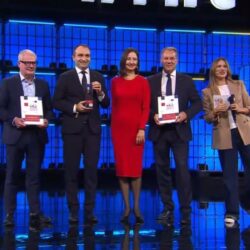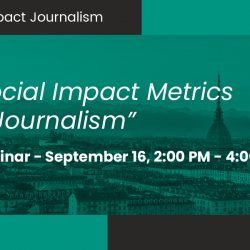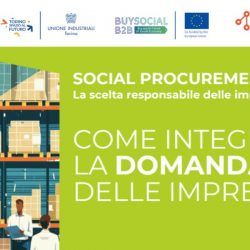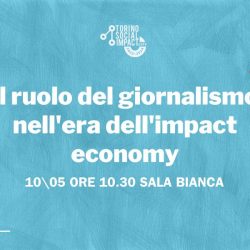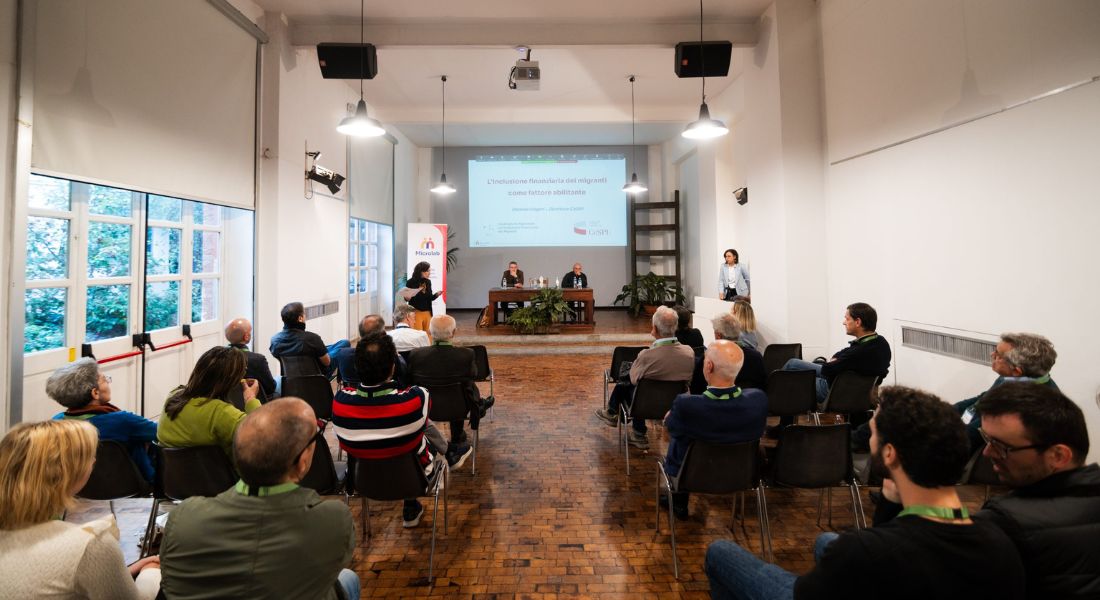The annual convention of the Business Mentors of the MicroLab Association took place on October 20th and 21st in Turin, at Serming. The meeting, always a moment of encounter and exchange of best practices among the voluntary mentors of the association, addressed the theme of inclusive growth, thanks also to exceptional guests.
“In this setting of the Arsenal of Peace, we want to recall with pleasure the contribution made to society in these twenty years of activity of the MicroLab Association,” declares Andrea Garello Cantoni, President of the MicroLab Association. “By offering services to the most vulnerable groups to help them enter the world of work and self-employment, through guidance, training, and mentoring. Over these years, more than 500 voluntary business mentors have taken turns, we have trained over 8,000 people on starting a business and financial education, supported 2,000 with one-to-one mentoring paths to start their own business, and helped in the delicate phase of job orientation for 1,000 young people looking for their first job.”
Daniele Frigeri, President of CeSpi, the Center for International Political Studies, was present at the convention. He has conducted analyses and research on the financial inclusion of foreign citizens for the past 10 years. He stated, “Financial inclusion, through all types of financial instruments available (credit, savings, investments, insurance, and the payment system), is an enabling factor for an individual to develop their projects over time, and thus becomes a fundamental piece of the socio-economic inclusion process in a society. In Italy, over 5 million citizens who were born abroad and have now chosen Italy live. Their condition as ‘immigrants’ puts them in a condition of multiple vulnerability; financial inclusion, understood not only as access but also as the effective use of financial instruments, can make a difference. Monitoring the financial inclusion process becomes fundamental to understanding needs and how they change over time, also following changes in external conditions (such as the pandemic or the crisis related to inflation), and accompanying this journey towards a mature financial profile.”
Remotely connected, Lucia Bucciarelli Ducci, Country Manager CEB, Development Bank of the Council of Europe, the oldest multilateral financial institution after the World Bank, with the peculiarity of having social purposes, said, “Europe has faced and is facing a series of discouraging challenges: from COVID-19 to the ongoing climate emergency, to the Russian aggression in Ukraine, not to mention the impact of these crises on our economies. In this context, vulnerable people are the most affected, and the poor investments in social sectors further worsen the situation.
In 2022, the CEB member states approved the new Strategic Plan 2023-2027, which defines a series of ambitious objectives, also in response to these challenges, on three lines of action: Investing in people and enhancing human capital, Promoting inclusive and resilient living environments, and Supporting employment and economic and financial inclusion. Microfinance and support for the most vulnerable are at the center of these objectives, and the long-standing cooperation with MicroLab confirms this.”
Also present was Juri Di Molfetta, President of the A Pieno Titolo Association Onlus, which since 2012 has been accompanying third-country citizens in the process of recognizing qualifications obtained abroad: “Foreigners residing in Italy are often pushed to take on much humbler job positions than they could aspire to, giving rise to a model of subaltern integration, in which the foreign citizen renounces in most cases to follow a path in line with their studies and their professional profile acquired abroad. The A Pieno Titolo ONLUS association therefore aims with its projects and orientation services in the territory to favor the integration of the foreign citizen in the world of work and in the territorial context, enhancing the curricula of study and professionals matured in foreign countries, favoring their formal recognition in Italy and making skills and professionalism, for now, little valued in the local economic system, usable.”
During the convention, the business mentors of the association had the opportunity to discuss their mentoring experiences and devise new practices such as co-mentoring, to better support the beneficiaries of the association.
Popular
